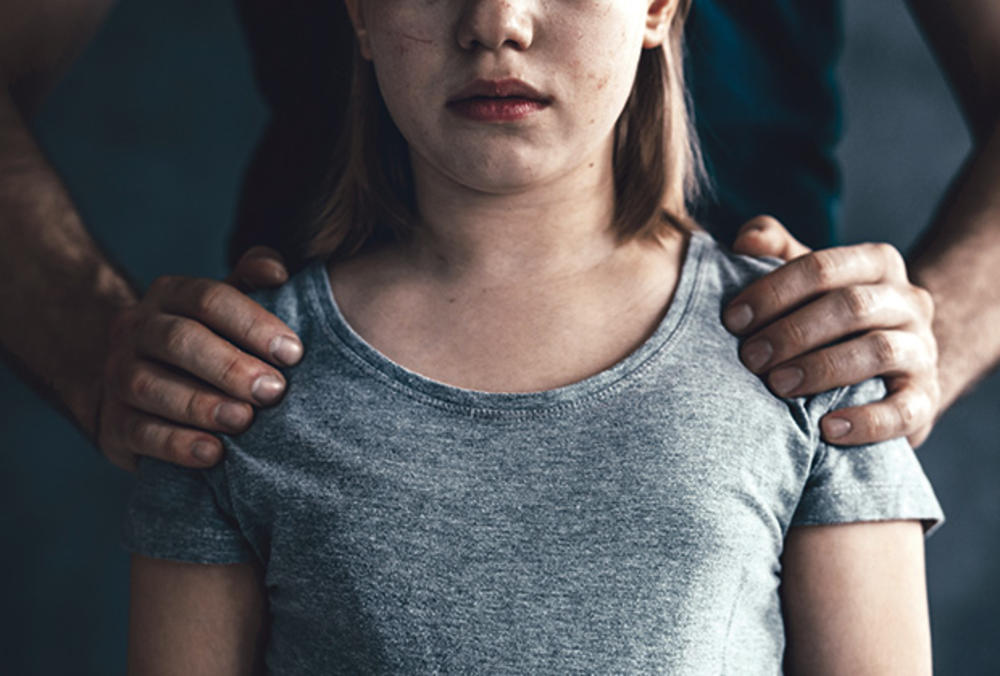Were You the Victim of Institutional Abuse?
Institutional child sexual abuse is a grave betrayal of trust, and victims deserve justice for the lifelong impacts they endure. A skilled child sexual abuse attorney can help survivors seek justice and hold institutions accountable for enabling such heinous acts.

Start My Institutional Abuse Claim Now
institutional abuse
Institutional child sexual abuse is a grave betrayal of trust, and victims deserve justice for the lifelong impacts they endure. A skilled child sexual abuse attorney can help survivors seek justice and hold institutions accountable for enabling such heinous acts.
The prevalence of sexual abuse within institutions has shocked the nation in recent years. From schools and religious organizations to nursing homes and group homes, victims have come forward to share their stunning stories of abuse. In response to these heinous acts, both criminal and civil justice systems have provided avenues for seeking justice and holding perpetrators accountable. To learn more about pursuing legal action through a sexual abuse lawsuit, contact our consumer advocates or fill out the form today. We can connect you with a knowledgeable attorney who specializes in sex abuse lawsuits.
What is Institutional Sexual Abuse?
Institutional sexual abuse occurs when individuals in positions of power exploit their authority to engage in sexual misconduct or assault. This abuse can take on various forms, such as teacher-student relationships, camp counselors abusing campers, coaches victimizing athletes, or even clergy members preying on children. Additionally, employees in nursing homes, assisted living facilities, or group homes may sexually harass or assault vulnerable patients under their care. This form of abuse encompasses a wide range of acts, including forcible assault, rape, touching or fondling, and subjecting victims to pornography or sexual performances. Often, the abuse starts with inappropriate comments and escalates to more severe physical assault. Institutional sexual abuse can have devastating and long-lasting effects on the victims, leading to physical, mental, and emotional trauma.
Examples of Institutional Abuse
Institutional abuse is a grave violation of trust and a deeply distressing issue that affects various segments of society. This form of abuse occurs within organizations or systems that are meant to provide care, support, or supervision to individuals. The following are some examples of the types of institutional abuse that occur in our society:
Clergy Abuse
Clergy abuse refers to instances where religious leaders, such as priests, ministers, or pastors, exploit their positions of authority to commit acts of abuse against vulnerable individuals. These abuses can range from sexual misconduct to emotional manipulation, leaving lasting scars on the survivors. Victims of clergy abuse often face significant challenges in coming forward due to feelings of shame, fear, or the power dynamics inherent in religious institutions. New laws provide a pathway for survivors to seek justice, hold those responsible accountable, and obtain compensation for the physical, emotional, and psychological harm they have endured.
Nursing Home Abuse
Nursing homes are intended to be places of care and compassion for elderly or vulnerable individuals. Unfortunately, instances of abuse and neglect within these facilities are all too common. Nursing home abuse can take various forms, including physical, emotional, sexual, or financial exploitation. Negligent or understaffed facilities may fail to provide adequate care, resulting in injuries, bedsores, malnutrition, or medication errors. Attorneys specializing in nursing home abuse claims work tirelessly to protect the rights of vulnerable individuals and seek justice for those who have suffered at the hands of caregivers entrusted with their well-being.
Abuse in Prisons
Prisons are meant to be institutions of rehabilitation and correction. However, there have been shocking and deeply disturbing instances of abuse within these facilities. Prisoners may face physical violence, sexual assault, emotional abuse, or neglect at the hands of staff or other inmates. The power dynamics within the prison system can make it difficult for victims to come forward and seek justice for the harm they have suffered.
Abuse in Juvenile Centers and Government-Sponsored Holding Facilities
Juvenile centers and other government-sponsored holding facilities are designed to provide guidance, support, and rehabilitation for young individuals who have come into conflict with the law. However, instances of abuse within these institutions can have severe and long-lasting effects on the lives of these vulnerable individuals. Abuse in such facilities can take the form of physical, emotional, or sexual abuse, as well as neglect or the denial of basic rights.
Abuse at Colleges and Universities
Allegations of abusive coaching have plagued college athletic programs for years. Coaches have been accused of shaming players, dismissing mental health concerns, and pushing athletes to play through injuries. Despite investigations, some allegedly abusive coaches remain in their positions, highlighting the need for action to address this issue.
Abuse Involving Elite Coaches
Elite coaching programs, particularly in cheerleading, gymnastics, and Olympic sports, have faced allegations of sexual abuse and misconduct in recent years. Coaches have been accused of engaging in inappropriate relationships with young athletes, while organizations responsible for safeguarding them have failed to protect them adequately.
Abuse at the Southern Baptist Church
The Southern Baptist Church has been rocked by allegations of clergy abuse. Survivors have come forward with stories of abuse by trusted clergy members, creating a deep sense of betrayal within the community. It is essential to address these abuses and bring justice to the survivors.
Uncovering Institutional Sexual Abuse
Identifying cases of institutional sexual abuse can be challenging due to the power dynamics between perpetrators and victims and the control perpetrators exert over victims’ daily lives. Victims may fear retaliation if they report the abuse, especially when the abuser holds a position of authority or influence. In some instances, victims may have a medical condition or disability that hinders their ability to report the abuse to facility supervisors or law enforcement. Often, these cases only come to light when a third party, such as a family member, fellow employee, or resident, notices suspicious behavior or signs of abuse.
It is crucial to remain vigilant and attentive to any potential signs of institutional sexual abuse. Changes in behavior, unexplained anxiety or agitation, and discomfort around specific individuals may indicate underlying abuse. If you suspect someone is a victim of institutional sexual abuse, it is essential to report your concerns to the appropriate authorities, such as the police or facility management.
Seeking Justice through Sexual Abuse Lawsuits
Victims of institutional sexual abuse have the right to seek justice through sexual abuse lawsuits. In many states, there are both criminal and civil statutes that address institutional sexual abuse, offering victims multiple avenues for pursuing legal action and obtaining compensation.
Criminal Penalties
When an individual is accused of non-consensual touching or other sexual conduct with a vulnerable person under their care, they may face criminal charges for sexual assault. It is important to note that there is a statute of limitations for many criminal sexual assault crimes. Failure to report abuse within the specified timeframe may limit law enforcement and prosecutors’ ability to bring charges. However, the statute of limitations can be tolled or paused until the abuse is discovered, ensuring that victims have a chance to seek justice.
Civil Penalties
In addition to criminal penalties, perpetrators and the institutions that allow or facilitate institutional sexual abuse can also face civil liability. This means that victims and their families can pursue financial compensation through civil lawsuits. To hold an individual or institution accountable, victims must demonstrate three key elements:
- The individual or institution owed a duty of care to the victim,
- The individual or institution breached this duty, and
- The breach resulted in physical, mental, or emotional injuries.
While establishing the duty of care is generally straightforward, proving that this duty was breached, resulting in harm, can be challenging. In the case of an institution, it may involve showing a lack of employee screening, failure to address initial reports of abuse, or other forms of negligence within the institution.
Long-Term Consequences of Institutional Sex Abuse
Successful civil lawsuits can provide victims with the financial means to access necessary trauma care and therapy, aiding their recovery process. While a successful conviction or lawsuit can provide closure, recovering from institutional sexual abuse is a long and arduous journey, and healing often requires specialized treatment and support. Victims of institutional sex abuse are encouraged to seek therapy to address the emotional and psychological trauma caused by the abuse. It is understandable that trusting someone with painful memories may be difficult, but seeking professional help is a vital step toward healing and reclaiming one’s life.
Institutional Sex Abuse in the News
Institutional child sexual abuse has been making headlines recently, shedding light on the dark realities that victims have endured for far too long. These incidents, where abuse is covered up and enabled by institutions like schools and churches, have caused lifelong impacts on survivors. The following are some institutional sex abuse cases that have been featured in the news recently:
- In Illinois, a five-year investigation into child abuse claims against Catholic clergy revealed the names of 451 substantiated abusers, with over 1,900 victims coming forward.
- In Baltimore, it was reported that the Catholic Church sexually abused at least 600 children over 60 years.
Working with a Skilled Sexual Abuse Lawyer
Navigating the legal process and pursuing a sex abuse lawsuit can be overwhelming, especially when taking on large corporations or organizations responsible for institutional sexual abuse. Engaging the services of an experienced sexual abuse lawyer is essential to ensure your rights are protected and the responsible parties are held accountable. Child sexual abuse attorneys specialize in helping victims seek justice for the physical, emotional, and psychological wounds caused by sexual assault, harassment, and abuse. They play a crucial role in exposing these transgressions by filing lawsuits and holding institutions accountable for their actions. The settlements awarded in childhood sexual abuse cases can cover medical and therapeutic bills, loss of income, pain and suffering, punitive damages, and even wrongful death expenses. By taking legal action, survivors not only seek compensation for their own suffering but also help stop perpetrators, expose institutional failures that led to the abuse, and force institutions to improve their child safety policies.
Other Elder Abuse Related Topics

Start My Institutional Abuse Lawsuit Claim Now

What should you do? If you were the victim of institutional sex abuse, you should contact a lawyer as soon as possible to discuss filing a lawsuit.
Start Your Claim Now!
Institutional sexual abuse is a grave violation of trust and an affront to human dignity. Victims of this heinous crime have the right to seek justice and hold perpetrators accountable. Through criminal and civil legal avenues, sex abuse survivors can pursue compensation and contribute to the prevention of future instances of institutional sexual abuse. Contact our consumer advocates today for additional help. We can connect you with a skilled attorney who can guide you through the process of pursuing an institutional sex abuse lawsuit.
- Fight to Get The Compensation You Deserve
- Experienced Institutional Abuse Attorneys Within Reach



